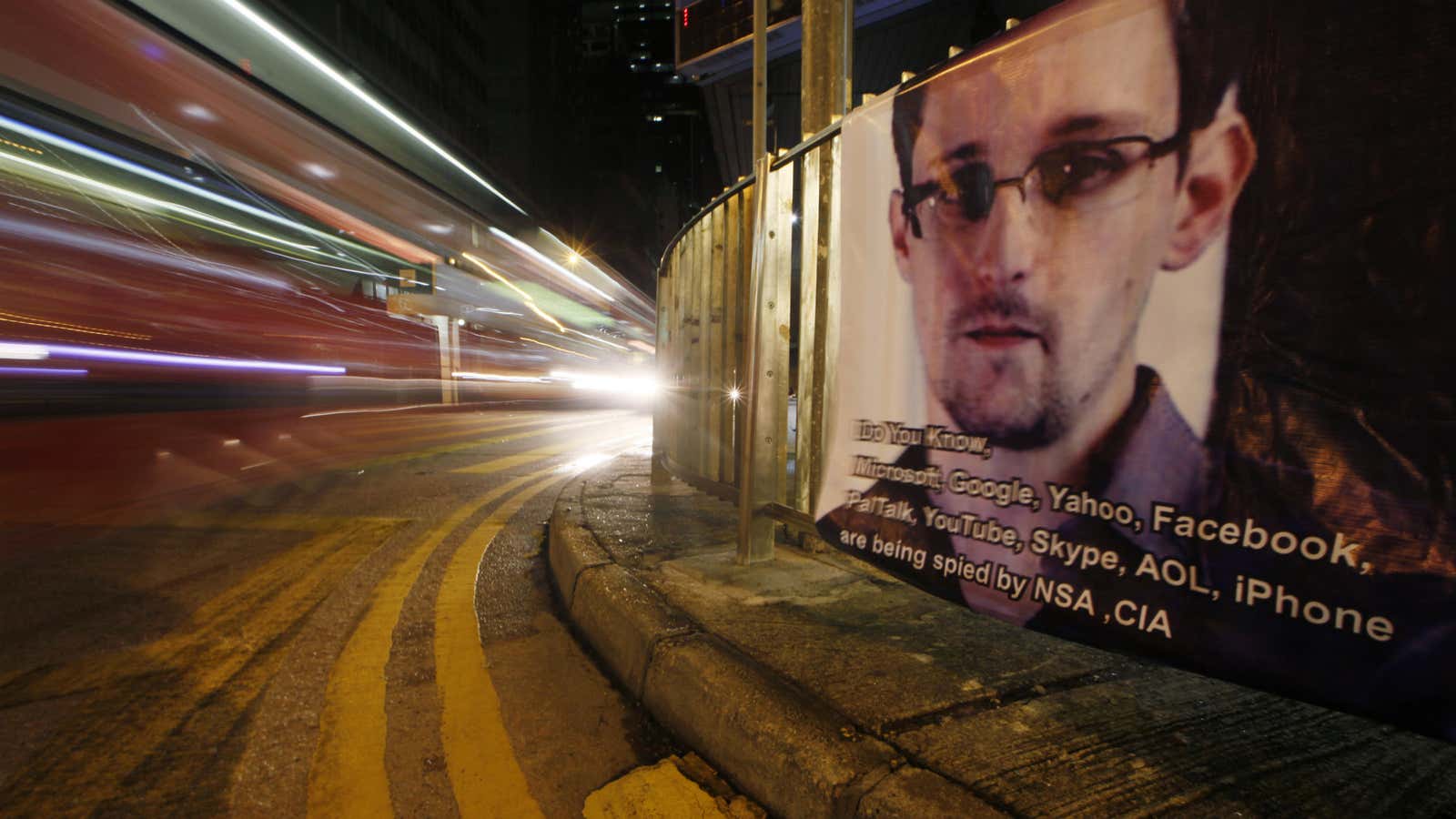To see music and politics mix isn’t much of a rare occurrence.
Musicians—visible, culturally influential, armed with the power of both a literal and metaphorical megaphone—often take to the recording studio to champion certain political views or activist movements. Sometimes, it resonates. “Imagine,” the Beatles frontman’s crooning socialist anthem, is perhaps the most recognizable example.
Yet when political figures worm their way into music, things don’t always click. Take the thinly veiled piece of propaganda that is China’s “official rap song,” released by the Communist Party last year. Or the not-really rock album dropped by Pope Francis a few months ago, in which His Holiness “sings” about climate change and charity. Not to mention the blatant ways in which candidates in this year’s US presidential rate have cleverly maneuvered their campaigns with music that appeals to certain audiences.
Joining them this week in the trend of political faux-music is none other than Edward Snowden. Call it “whistleblower electronica.”
Snowden collaborated with French electronic music composer Jean-Michel Jarre to produce “Exit,” a hectic medley of speedy techno and musings on cybersecurity. It includes so-called lyrics, spoken by Snowden, such as this:
The question is, why are our private details that are transmitted online—or why are private details that are stored on our personal devices—any different than the details and the private record of our lives that are stored in our private journals? […] Saying that you don’t care about the right to privacy because you have nothing to hide is no different that saying you don’t care about freedom of speech because you have nothing to say. It’s a deeply antisocial principle, because rights are not just individual. They’re collective. What may not have value to you today may have value to an entire population. If you don’t stand up for it, then who will?
Interspersed with Snowden’s words is the steady thump of a beat and a few notes. It’s not a song, really; it’s a monologue.
“Music, as with all art, is one of the only ways that we can create bonds and bridges between human hearts that are beyond semantic understanding,” Snowden said to Rolling Stone about the song.
Sure, but not when it’s not exactly music. By the looks of it, the gimmicky new wave of political audio may just be irritating more people than it’s fooling.
